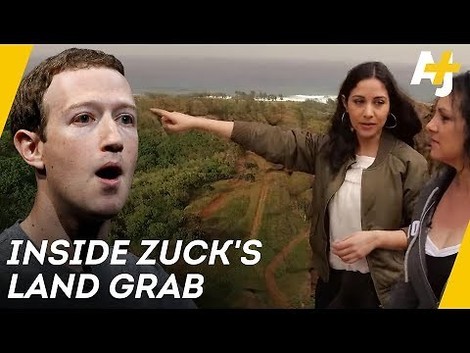Your podcast discovery platform
Curious minds select the most fascinating podcasts from around the world. Discover hand-piqd audio recommendations on your favorite topics.

piqer for: Climate and Environment
Pamela works as a Press & Communications Manager for an international NGO (IWGIA) defending indigenous peoples' rights. She holds an Erasmus Mundus MA in Journalism, Media & Globalisation from Hamburg and Aarhus University and an MA in Political Science from the University of Buenos Aires. She will be putting the eye on international media coverage of indigenous communities and their demands.
Mark Zuckerberg: The face Of Neocolonialism In Hawaii
"We respect Hawaiian history", stated the Zuckerberg family about their plans for land acquisition on the island state. If by respecting they meant repeating, they were right.
Hawaii, the paradisiacal honeymoon destination, is also home to a centuries-long battle over land, fought at the hands of indigenous descendants. Land grabs have been part of the country’s economic development since American plantation owners settled in 1893.
Some things money can't buy
But for the fifth richest person in the whole world, aka Mark Zuckerberg, land grabbing seemed like an easy move. Back in 2014, Facebook CEO bought 700 acres (literally over 500 football fields), and to secure the boundaries of his new residence, his lawyers filed hundreds of lawsuits against native Hawaiians. The aim was clear: to intimidate indigenous Hawaiians to sell their lands.
What he did not imagine is that money cannot buy traditional ways of living. "It’s our culture, we want to preserve it," explained one of the indigenous land owners. In Hawaii, indigenous peoples were granted collective ownership of parcels under the Kuleana Act of 1850.
This means that they gained the right to keep and protect their lands from foreign grabbing. Still, until today, this right is passed through generations without the need for a will.
This short documentary dives into the local community's reaction and paints a convincing picture of the clash of two belief systems: one where money rules and another where ancestral culture is being protected.
